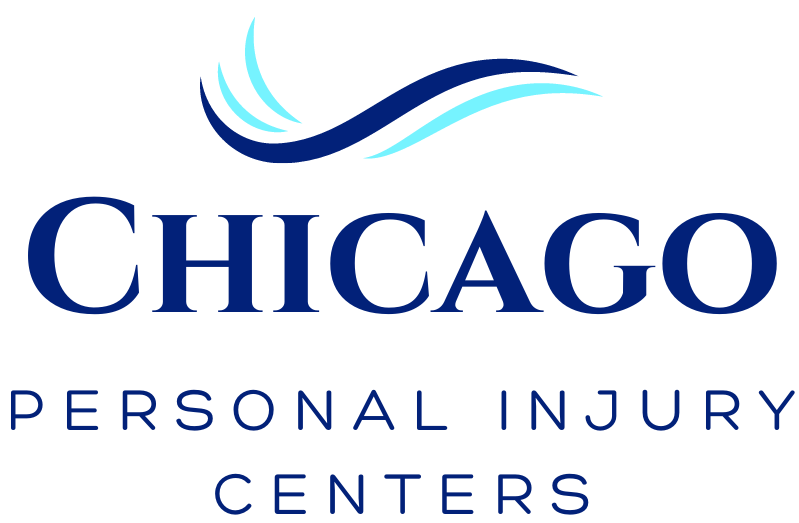Motorcycle accidents often pose serious risks to the rider and their passengers. While the law requires that you wear safety gear, the gear alone is not enough to fully protect the rider in the event of an accident. Even seemingly minor accidents can lead to severe and life-threatening injuries.
If you or a loved one was injured in a motorcycle accident, you need to take immediate action to protect your health and ensure you make a full recovery. Understanding the complexities of motorcycle accident injuries is crucial for comprehensive recovery. Some victims of motorcycle accidents often face challenges in obtaining compensation for their injuries.
Chicago Personal Injury Centers is ready to help you get the best motorcycle accident treatment while also protecting your legal rights. Our doctors have extensive experience treating motorcycle accident injuries. We also work with countless personal injury lawyers to help protect your rights.
Schedule an appointment with us today and keep reading to learn more about navigating recovery for motorcycle accident injuries.
Common Injuries from Motorcycle Accidents
Motorcycle accidents can result in a wide range of injuries due to the lack of protection for riders. Some of the most common motorcycle accident injuries include:
- Fractures: Broken bones are frequent in motorcycle accidents, particularly in the arms, legs, and pelvis. These fractures usually range from small breaks to compound fractures that need surgery and comprehensive rehabilitation.
- Head Injuries: Traumatic brain injuries (TBI) are a significant concern, even for riders wearing helmets. Concussions, skull fractures, and brain contusions can lead to long-term cognitive and physical impairments.
- Road Rash: When a motorcyclist slides across the pavement, severe skin abrasions known as road rash can occur. This injury can range from mild scrapes to deep wounds that require skin grafts and can lead to infection if not properly treated.
- Spinal Injuries: Damage to the spinal cord can result in partial or complete paralysis. Even non-paralyzing spinal injuries can cause chronic pain and require long-term treatment and rehabilitation.
- Internal Injuries: Internal injuries such as organ damage, internal bleeding, and pneumothorax (collapsed lung) can be life-threatening and often require immediate medical intervention.
What to Do Following a Motorcycle Accident
After a motorcycle accident, taking immediate and appropriate actions can help the recovery process and legal outcomes. Here are some of the steps to follow:
- Check on yourself and others: The first priority is to move to a safe location if possible, away from traffic and any further danger. This helps prevent additional accidents and injuries. Check on others as well and get them to safety.
- Seek Medical Attention: Even if injuries appear minor, it’s crucial to get a thorough medical examination as some motorcycle accident injuries, such as internal bleeding or concussions, might not be immediately apparent. Prompt medical attention can prevent complications and provide necessary documentation for future claims.
- Document the Incident: Gathering detailed information about the accident scene is essential. This includes taking photographs of the scene; collecting contact information of witnesses; and noting down details such as the time, date, location, etc.
- Notify Insurance and Legal Representatives: Contact your insurance company to report the accident and initiate the claims process. It may also be beneficial to consult with a personal injury attorney who can guide you through the legal aspects and help ensure you receive fair compensation.
Treatment Strategies for Motorcycle Accident Injuries
Emergency Care and Assessment
Following a motorcycle accident, immediate emergency care is vital. The primary goals for the doctors at this stage are to stabilize the patient, prevent further injury, and conduct a comprehensive assessment to identify all motorcycle accident injuries.
Common emergency treatments include:
- Stabilization: Ensuring the patient’s airway, breathing, and circulation (the ABCs) are intact is the first priority.
- Control of Bleeding: Severe bleeding needs to be controlled immediately using pressure bandages or tourniquets to prevent shock and further complications.
- Pain Management: Administering pain relief to alleviate the immediate discomfort and facilitate a thorough examination.
- Imaging and Diagnostics: Conducting X-rays, CT scans, and MRIs to assess the extent of injuries. These diagnostic tools help identify fractures, internal bleeding, organ damage, and other critical conditions that might not be visible externally.
Long-Term Rehabilitation Needs
Recovery from motorcycle accident injuries often requires extensive long-term rehabilitation to restore functionality and improve quality of life. Some of the common rehabilitation treatments include:
- Physical Therapy: Customized exercise programs designed to restore strength, flexibility, and mobility. Physical therapists work with patients to rehabilitate injured muscles and joints and help them regain as much physical function as possible.
- Occupational Therapy: Focuses on helping patients relearn daily activities and improve their ability to perform work-related tasks. This therapy is crucial for those who have suffered severe motorcycle accident injuries impacting their daily living and job performance.
- Counseling for PTSD: Many motorcycle accident survivors experience psychological trauma, such as post-traumatic stress disorder (PTSD). Counseling and psychological support are vital components of the rehabilitation process, helping individuals cope with trauma, anxiety, and depression related to the accident.
Pain Management
Effective pain management is crucial for the recovery process of motorcycle accident injuries. Several options are available to manage pain post-accident:
- Medication: Pain relief medications, ranging from over-the-counter painkillers like ibuprofen to prescription opioids, can help manage pain. Anti-inflammatory drugs and muscle relaxants may also be prescribed using an experienced medication management team.
- Physical Therapies: Techniques such as massage, hydrotherapy, and electrotherapy can alleviate pain and promote healing. Physical therapy exercises tailored to the patient’s specific injuries can help reduce pain and improve function.
- Injections: Injections offer targeted relief directly to the affected area, reducing inflammation and providing rapid symptom alleviation, which can be particularly beneficial for chronic conditions like arthritis or back pain
- Chiropractic Care: Chiropractors can provide spinal adjustments and other treatments to reduce pain and improve mobility, especially if the accident resulted in back or neck injuries.
The Role of Medical Documentation in Legal Claims
Documenting Your Injuries for Legal Purposes
Accurate and detailed medical records are important for supporting a personal injury claim following a motorcycle accident. These records serve as essential evidence that can substantiate the extent and impact of the injuries that you sustained.
This is important because:
Medical records typically include comprehensive descriptions of all injuries, symptoms, and treatments. This includes initial emergency care, diagnostic tests, surgeries, and follow-up treatments.
The records also keep a chronological record of medical visits, treatments, and rehabilitation progress. This helps to demonstrate the ongoing impact of the injuries and the necessity of continued medical care.
- Results from X-rays, MRIs, CT scans, and other diagnostic tests provide concrete evidence of the motorcycle accident injuries and their severity.
- Detailed treatment plans and medical opinions regarding the prognosis and expected recovery time can highlight the long-term implications of the injuries.
- Notes on the patient’s pain levels, limitations in daily activities, and psychological impact provide a fuller picture of the injury’s effect on the victim’s life.
Communicating with Healthcare Providers
It is crucial to inform healthcare providers that your injuries are related to the motorcycle accident. This ensures that the accident is documented in your medical records, which can be vital for your legal case.
Legal Considerations
When to Consult a Personal Injury Lawyer
Consulting a personal injury lawyer who specializes in motorcycle accidents can significantly benefit your case. It is advisable to consult a lawyer as soon as possible after the accident. Early legal advice can help you understand your rights, preserve evidence, and avoid common pitfalls.
Understanding Compensation for Medical Costs of Motorcycle Accident Injuries
Compensation for medical costs can cover both immediate and long-term care. For motorcycle accidents, compensation can include expenses for emergency room visits, surgeries, hospital stays, and initial medical treatments.
Victims can claim compensation for ongoing medical needs such as physical therapy, follow-up surgeries, prescription medications, and assistive devices. Legal claims can also include projected future medical costs based on the injury’s impact and expected recovery trajectory.
Compensation may also cover costs related to long-term rehabilitation programs and necessary modifications to the home for accessibility.
Preventive Measures and Safety Tips
Safety Gear and Precautions
Proper safety gear is essential for minimizing injury risk. Recommended gear includes:
- Helmets: a DOT-approved helmet is the most crucial safety measure to protect against head injuries.
- Protective Clothing: Leather or reinforced jackets and pants protect against road rash and abrasions.
- Gloves: Heavy-duty gloves protect hands from injury and improve grip.
- Footwear: Sturdy, over-the-ankle boots provide protection and support.
- Reflective Gear: Wearing bright and reflective clothing enhances visibility to other road users.
Get Quality Treatment for Your Motorcycle Accident Injuries
Motorcycle accidents can easily result in severe and life-threatening injuries. Receiving immediate and quality medical care your motorcycle accident injuries is vital for your overall health and recovery. Additionally, taking legal action, documenting your injuries, and working with an attorney can help you receive the compensation you’re entitled to for the accident.
The team at Chicago Personal Injury Centers has been serving Chicago residents for decades now, and we’re ready to help you make a full recovery from your motorcycle accident injuries. Call us today at (773) 482-5800 for a free consultation.

